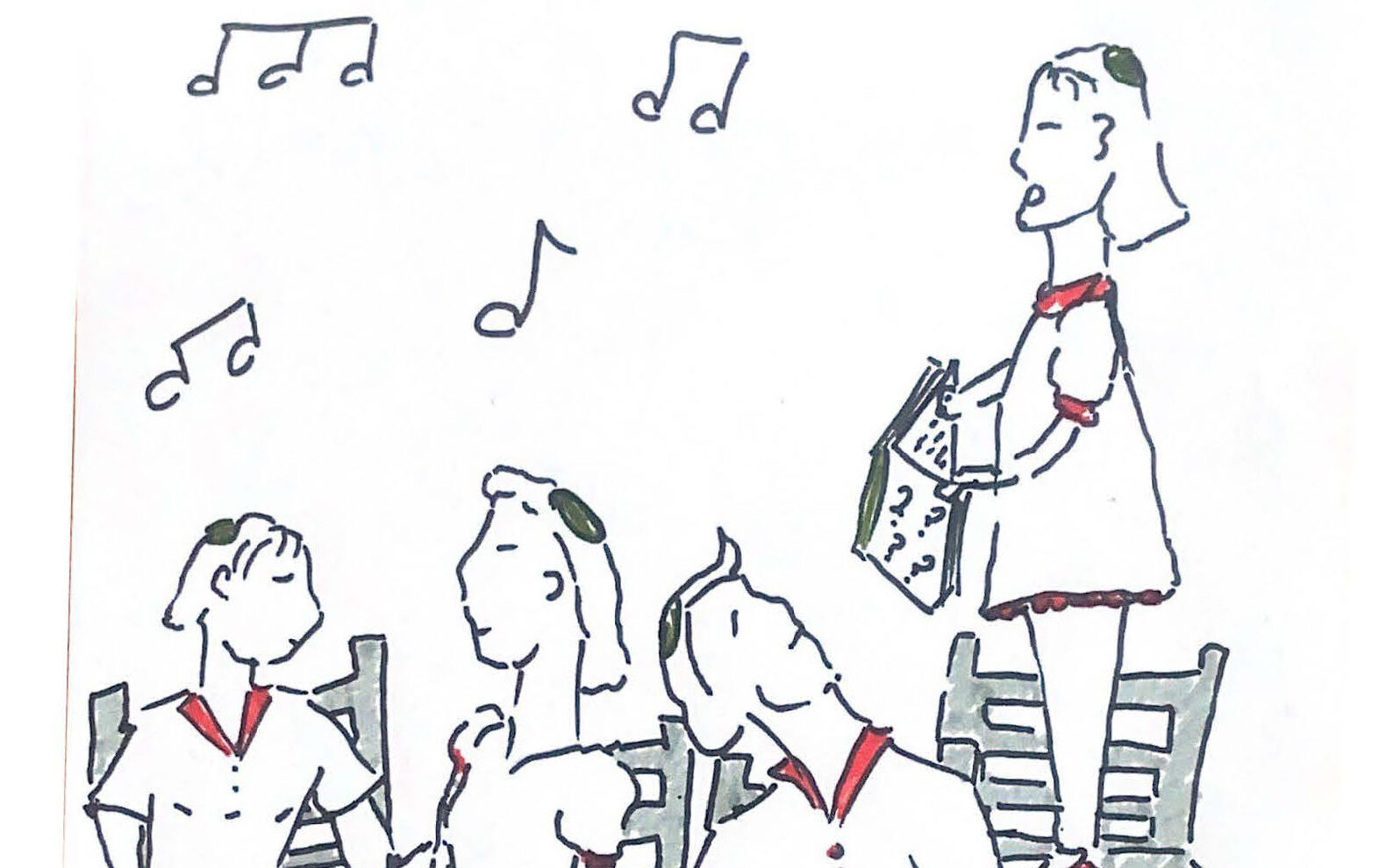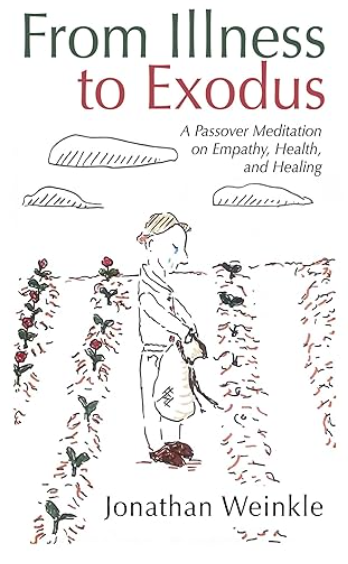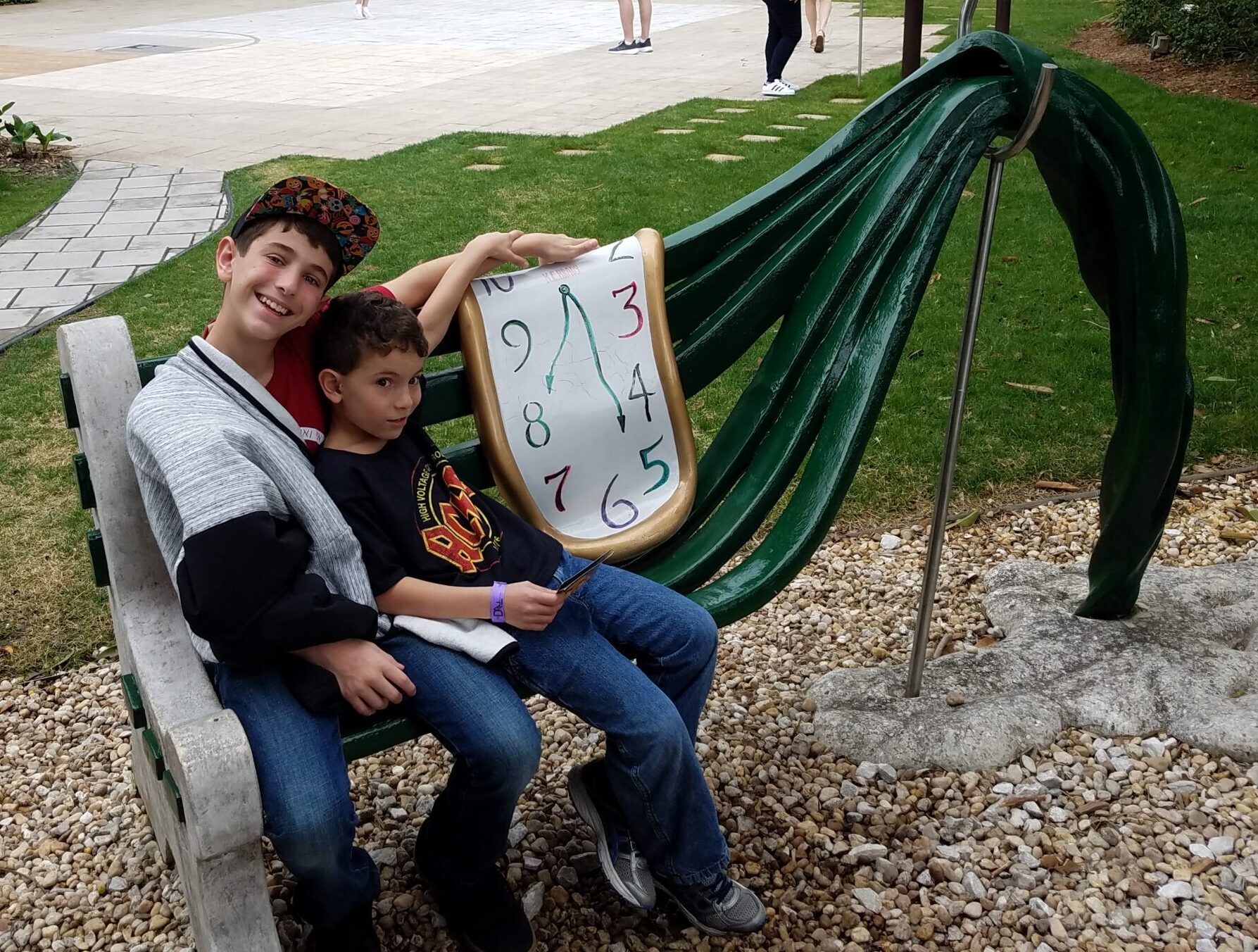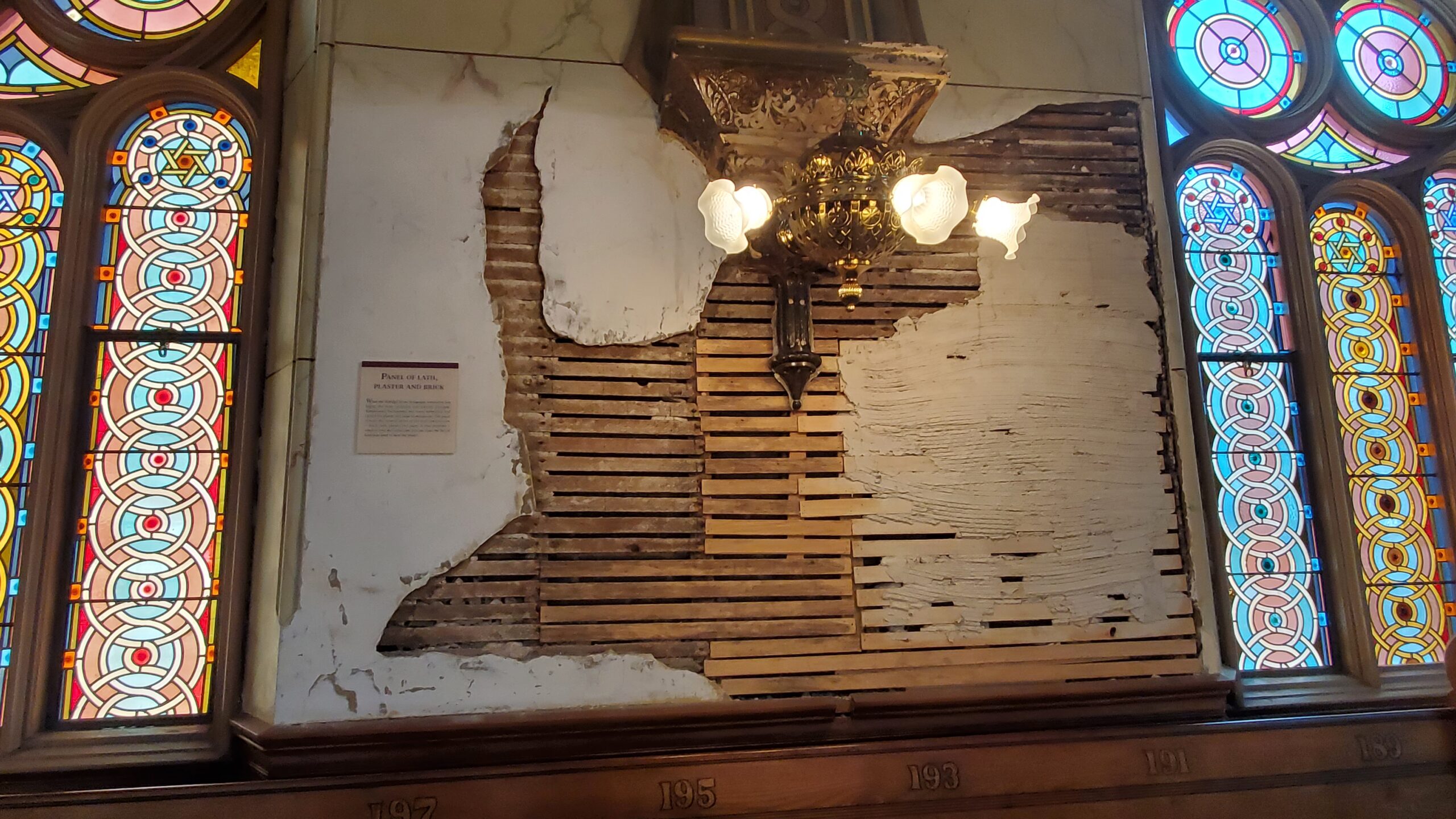Part of the experience of illness is often a sudden flood of people lining up to say, “How can I help?” These words imply a promise – a promise to provide support, to be there when things really start to suck, to know what we need before we know we need it.
Read MoreMaking a Difference
Even if you’re not Jewish, you may know one common phrase from the Passover seder: “Why is this night different from all other nights?”
Or at least, that’s how it’s often translated. Some people think this is actually an expression of wonder, like, “How different this night is from all other nights?” For others, it is a much more cynical expression that nothing has changed at all, as in, “What else is new?”
In the course of an illness, variations of this question come up all the time. Do any of these resonate with you, either about your illness or about the person you’re caring for:
Why did I choose today to come to the doctor?
Is today any different than the other times I’ve been asked “how are you?” For the better or the worse?
How am I going to make today different for this person who needs my help? Why didn’t I do that before?
Will there ever be a “different” day?
To order a copy of From Illness to Exodus, click here and enter code CONF40 at checkout. You can also visit your favorite behemoth online retailer – but I really love my publisher so go there. Remember to share your responses – and share these posts in your own feed, or at your seder table IRL. Also, if you’re available Tuesday, April 8 at 8:00 EDT, join online for my “book talk” in the Religion and Healthcare lecture series sponsored by Pitt’s Center for Bioethics and Health Law.
Breaking Points
Like a lot of Jewish holidays, Passover is about living through a shared trauma, and coming out the other side. But right at the beginning of seder, we break a piece of matzah in half. This ritual act often serves as a jolting reminder, amidst all the talk of survival and persistence, that we do have our breaking points. And they aren’t always in the places we expect them to be, like along those little perforated lines in the matzah (for my favorite seder joke about this, you’ll have to read Chapter 7, “Breaking Points”).
In coping with illness, trauma, loss, or the care of those suffering through these experiences, where are your breaking points? Once you break – or crumble – can you be put back together again?
To order a copy of From Illness to Exodus, click here and enter code CONF40 at checkout. You can also visit your favorite behemoth online retailer – but I really love my publisher so go there. Remember to share your responses – and share these posts in your own feed, or at your seder table IRL.
Sanctifying the Everyday
1 Nisan 5785/March 30, 2025
It’s the beginning of the month of Nisan on the Jewish calendar. Two weeks from today, Jews around the world commemorate the Exodus from Egypt. This year, with the release of my new book, From Illness to Exodus, I’m thinking about Jews and non-Jews alike might use this time to contemplate a different type of Exodus – from the sicknesses of body, mind, and spirit that confine them and those they love to a narrow place that will not let them live and flourish.
I wrote this book looking for ways to frame my practice of medicine and create rituals that would direct me toward being the type of physician I strive to be – one who cares for the whole person, who sees the Divine in the patient and attempts to emulate Divine behavior in my own actions.
Every good Jewish ritual begins with a Kiddush – a sanctification over wine, usually, but that seems like a bad course of action for a doctor beginning their day. So I offer this kiddush for healing, to be said over whatever you usually drink in the morning to get you going, and evoking both Hashem’s example of healing us, and the commandment for us to heal each other. Kiddush is meant to “separate in order to elevate,” in the words of my teacher and friend, Rabbi Danny Schiff. We separate an ordinary beverage and make it special – and in so doing also point out the other things that we want to bring to a higher plane, like our ability to effect healing in those who are hurting.
(ירים כוס קפה, תה, מיץ או חלב ומברך)
ברוך אתה ה’ א-להנו מלך העולם, שהכל נהיה בדברו.
ברוך אתה ה’ א-להנו מלך העולם, אשר קדשנו במצוותיו וציוונו רפוא לרפא.
ברוך אתה ה’ א-להנו מלך העולם, הדואג לאדם הראשון שלא טוב היותו לבדו, המבקר לאברהם בהחלמתו, והמנחם לרבקה בהתרוצץ בניה בקירבה. הבטחת על-שפת הים כי אתה ה’ רופאנו, שענה לתפילת משה למען מרים: “א-ל נא, רפא נא לה.”
ברוך אתה ה’, הרופא לשבורי לב וחבש לעצבותם.
(One raises a cup of coffee, tea, juice, or milk and blesses:)
Blessed are You, Hashem, our God, Sovereign of the Universe, Whose word brought everything into existence
Blessed are You, Hashem, our God, Sovereign of the Universe, who sanctified us with God’s Mitzvot and commanded us to heal true healing.
Blessed are You, Hashem, our God, Sovereign of the Universe, who worried for the first human that it was not good for him to be alone, who visited Avraham in his convalescence, and who comforted Rivka when her children chased each other about within her. You promised on the shore of the sea that you were Hashem our healer, that answered the prayer of Moshe on Miryam’s behalf: “Please God, heal her, please.”
Blessed are You, Hashem, the Healer of broken hearts and Binder of their wounds.
Now it’s your turn. Write your “healing kiddush.” Think about what perspective you’re writing from – a health professional? A family caregiver for someone who is chronically ill? A person newly diagnosed with a serious disease? What will you have in the glass you raise, and what examples will you highlight in your prayer that spell out your hopes – or lay out the road map for you to push toward your goals?
More than Four Questions

Pesach is coming. For those who celebrate, the approach of a Passover seder means a frenzy of cleaning, schlepping, and cooking – and can be the least spiritual thing we do all year. Don’t let that happen to you this year. As I begin to get out and speak about my new book, From Illness to Exodus, I’m trying to refocus on the lessons of the holiday, and the things I learned about doing my job as a doctor, and about my inevitable role as a patient, while writing it.
Read MoreFrom Illness to Exodus

Being sick, especially being chronically ill, can feel like being trapped in a narrow place, with no way out. Even professional healers can feel trapped, not knowing how to lift that person up. One of the oldest stories in the world, the exodus, is a tale of escaping that kind of trap. For the past five-plus years, I have been working on a book that uses the story of the exodus to help understand illness and healing—the narrow space, and the way out. At long last, the book is finished, and not a moment too soon. In this hour where everything seems to be closing in on us – personally, professionally, societally – I hope I can provide some road map of the way through.
Read MoreA Great, Bitter Cry

Everyone in Florin heard the scream.
In S. Morgenstern’s Classic Tale of True Love and High Adventure, known to most Americans as William Goldman’s The Princess Bride, the evil Prince Humperdinck tortures the hero, Westley, to an agonizing end. At the moment of his passing, he lets forth a death scream that can be heard across the city and into the countryside. No one knows what it is – except for one man. Inigo Montoya, the Spanish master swordsman whose father was slain before his eyes when Inigo was only six.
Read MoreRenew Our Days

I grew up watching Happy Days on TV. In one episode, Arnold’s, the drive-in “greasy spoon” where the characters all hang out, burns to the ground. When the gang tours the wreckage after the fire, Fonzie (played by Henry Winkler to whom I am not related) tries his signature cool guy move of banging the jukebox to get it to start playing a song.
The charred front panel of the jukebox falls pitifully to the ground.
We are all trying to go home again. Back to our former state of health, back to our youth, back to the good old days – those Happy Days the show refers to, the “simpler time” of the 1950s that people living through the turbulent ‘seventies thought they were nostalgic for. Ironically, when my friend Jeff Finkelstein lost his father Norman last fall, part of his nostalgia was to display the books his father had written – including my favorite, a book called The Way Things Never Were, about how misplaced all that 1950s nostalgia really was.
Read MoreAt Arms Length?

There’s a reason I’m not a surgeon.
Last month our handyman came by to definitively fix our shower doors. I’d been “fixing” them almost as long as we’ve had them: hanging them back on the track when they fell, reattaching the wheels when the screws came out, or reattaching the bottom bracket when it wiggled completely off, and the interior door swung loose. They were installed crookedly on day one, owing partly to my entire house being crooked (old mine shafts and shifting Western Pennsylvania bedrock) and partly to shoddy workmanship. I could never buy us more than a couple of months of being able to use both doors before I had to tell everyone not to touch the interior door or else. I know how to think, not so much how to wield tools. I could see where the problem was coming from, but in the implementation, something always went wrong. I needed Mark to bail me out.
Read MoreThe Torah of Treating People with Substance Use Disorders

Originally delivered as the D’var Torah at Congregation Beth Israel, Vancouver, BC, Canada, Shabbat Yitro, 5784 (February 3, 2024). Event co-sponsored by JACS Vancouver (Jewish Addiction Community Services). Edited for clarity.
When I was a senior in high school, a band called The Black Crowes released their hit song, “She Talks to Angels.” The song opens, “She never mentions the word ‘addiction’ in certain company.”
Even so, she must mention the word more often than the Torah does, which is never. The “Torah” of working with people grappling with substance use must be extrapolated from other topics we encounter in the text, like laws relating to electricity or space travel. Unlike those twentieth-century inventions, however, addiction has been around since the dawn of time – we just didn’t mention the word.
Read More